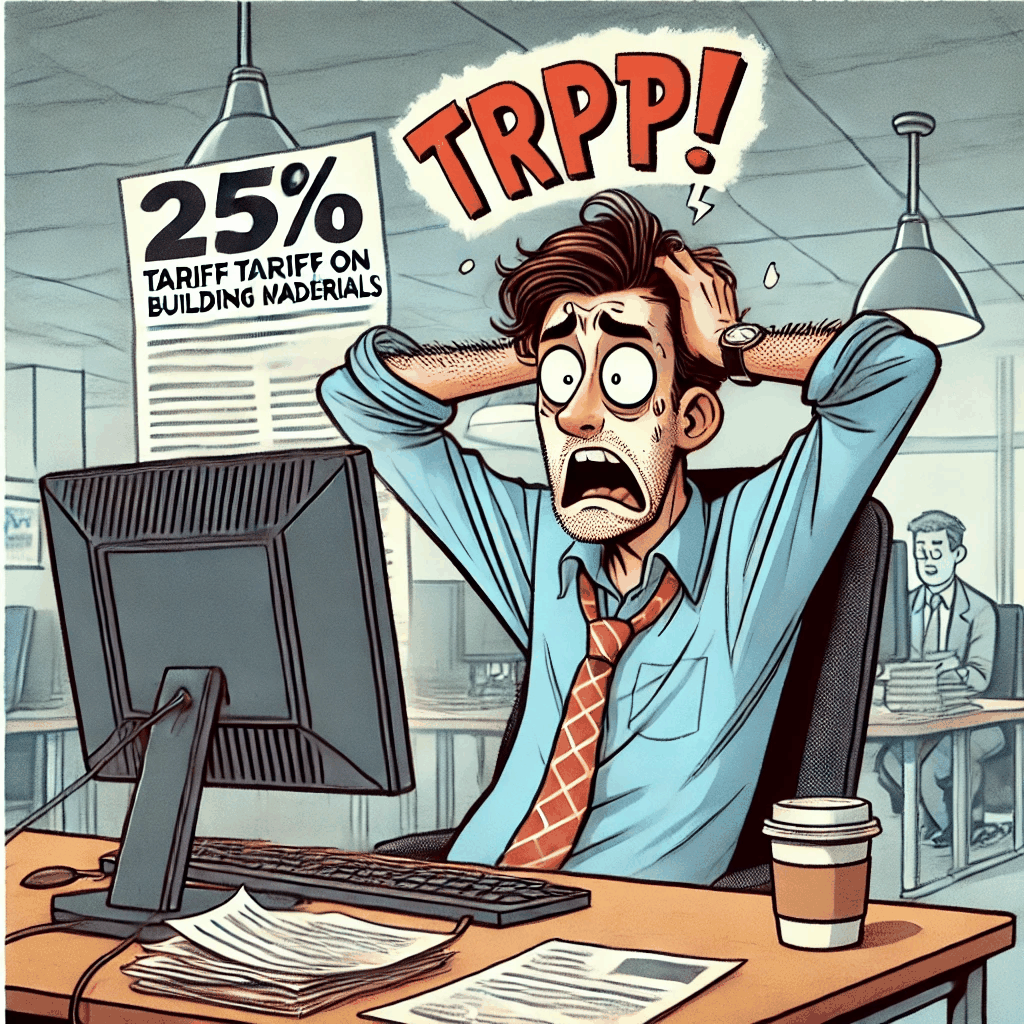Tariff Talk
On Friday, March 7th, we discussed face-to-face. A full description is below.
Cassie Discusses the tariff and how we can make smart buying decisions.
Navigating Tariffs in the Cedar Shake and Shingle Industry
Introduction
Good morning! I'm Alan Stout, Vice President at Cedarwood, and today I’m speaking with Cassie Day, our Cedar Shake and Shingle Manager. Cassie oversees not only the selling and pricing of shakes and shingles but also purchasing. Given the recent developments in tariffs, we wanted to provide an update on how this impacts our industry, especially since a significant portion of our cedar shakes and shingles come from Canada.
Current Status of Tariffs
The biggest challenge with tariffs right now is uncertainty. Prices are fluctuating, and demand for Canadian fiber is extremely high. Many in the industry are trying to import as much as possible while there is a temporary tariff pause.
As of March 6, President Trump announced another pause on tariffs, meaning that for now, we are tariff-free until April 2. However, after that date, there’s no clear direction on what will happen next. If tariffs are reinstated, mills will increase prices by 25%, directly impacting costs for contractors, lumber yards, and ultimately, homeowners.
The Impact on the Forestry Industry
Tariffs don’t just affect cedar shakes and shingles—they impact the entire forestry sector. The reality is that harvesting cedar doesn’t happen in isolation. If mills aren’t processing other types of wood like hemlock, they’re not harvesting cedar either, leading to supply constraints.
The Cedar Shake and Shingle Bureau is actively working with the Canadian government to advocate against tariffs. Their goal is to protect the industry from unnecessary financial strain that affects both suppliers and end users.
Where to Find Reliable Tariff Information
Finding a reliable news source on tariffs is difficult, as even mainstream outlets often lack concrete details. One of the best resources is WhiteHouse.gov, which provides up-to-date, factual information without political bias. This site outlines whether tariffs are in place, which products are affected, and any exemptions.
Why Are Tariffs Being Imposed?
The stated purpose of these tariffs varies. Originally, they were linked to efforts to curb fentanyl trafficking and illegal immigration at the U.S.-Mexico border. However, with Canada also facing tariffs, the reasoning is less clear. Some believe it is part of a broader economic strategy to balance trade, as Canada has significant tariffs on U.S. agricultural products like dairy and eggs.
Unfortunately, there is no clear threshold for when tariffs might be removed, making long-term planning difficult.
When Is the Best Time to Buy?
The most pressing question for contractors and distributors is whether to buy now or wait. Given current conditions, now is the best time to purchase. Prices are steadily rising due to uncertainty, sometimes increasing by $5 to $10 per square or more.
At Cedarwood, we have proactively purchased two and a half extra truckloads of inventory to provide price protection for customers. If you are considering an order, securing materials before April 2 is advisable to avoid potential tariff-related price hikes.
Can American Cedar Replace Canadian Fiber?
American cedar mills do produce shakes and shingles, but Canadian fiber tends to be superior due to its slower growth, tighter grain, and longer-established milling processes. While American fiber is a viable option, increased demand will likely drive up U.S. prices if Canadian products become more expensive due to tariffs.
Will Tariffs Be Refunded?
Historically, some tariffs have been refunded, as was the case with the previous Section 232 tariff. However, there is no indication that the current tariff structure will offer similar refunds. Instead of waiting on potential reimbursement, it’s best to plan purchases based on current costs.
How to Handle Pricing and Quotes
For those providing quotes to customers, we recommend including a tariff disclaimer stating:
Pricing is subject to change based on tariff rates at the time of shipment.
This helps set realistic expectations, particularly for projects requiring fire-treated or custom-cut materials, which may have longer lead times.
Storage Solutions for Large Orders
Given the market’s volatility, Cedarwood offers storage solutions for customers who want to secure pricing now but don’t need their materials immediately. We’ve helped contractors save significantly by holding stock for them, ensuring they avoid price hikes down the road.
Should There Be Tariffs on Shakes and Shingles?
The cedar shake and shingle industry operates differently from dimensional lumber markets. Many materials must cross the border for certification processes, such as fire treatment, which is only available in Canada. Tariffs only add unnecessary cost to an already premium product, potentially pushing customers toward alternative materials like asphalt roofing or vinyl siding.
Final Thoughts
Navigating tariffs is challenging, but staying informed and making strategic purchasing decisions can help mitigate risks. If you have upcoming projects, now is the time to lock in pricing and secure inventory before potential changes on April 2.
For more information, feel free to reach out. We’re here to help you navigate these uncertainties and ensure you have the best options available for your cedar shake and shingle needs.

